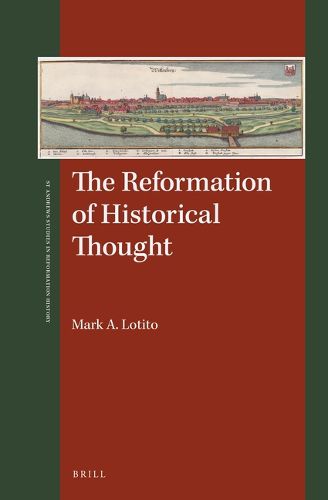Readings Newsletter
Become a Readings Member to make your shopping experience even easier.
Sign in or sign up for free!
You’re not far away from qualifying for FREE standard shipping within Australia
You’ve qualified for FREE standard shipping within Australia
The cart is loading…






In The Reformation of Historical Thought, Mark Lotito re-examines the development of Western historiography by concentrating on Philipp Melanchthon (1497-1560) and his universal history, Carion’s Chronicle (1532). With the Chronicle, Melanchthon overturned the medieval papal view of history, and he offered a distinctly Wittenberg perspective on the foundations of the modern European world. Through its immense popularity, the Chronicle assumed extraordinary significance across the divides of language, geography and confession. Indeed, Melanchthon’s intervention would become the point of departure for theologians, historians and jurists to debate the past, present and future of the Holy Roman Empire. Through the Chronicle, the Wittenberg reformation of historical thought became an integral aspect of European intellectual culture for the centuries that followed.
$9.00 standard shipping within Australia
FREE standard shipping within Australia for orders over $100.00
Express & International shipping calculated at checkout
In The Reformation of Historical Thought, Mark Lotito re-examines the development of Western historiography by concentrating on Philipp Melanchthon (1497-1560) and his universal history, Carion’s Chronicle (1532). With the Chronicle, Melanchthon overturned the medieval papal view of history, and he offered a distinctly Wittenberg perspective on the foundations of the modern European world. Through its immense popularity, the Chronicle assumed extraordinary significance across the divides of language, geography and confession. Indeed, Melanchthon’s intervention would become the point of departure for theologians, historians and jurists to debate the past, present and future of the Holy Roman Empire. Through the Chronicle, the Wittenberg reformation of historical thought became an integral aspect of European intellectual culture for the centuries that followed.